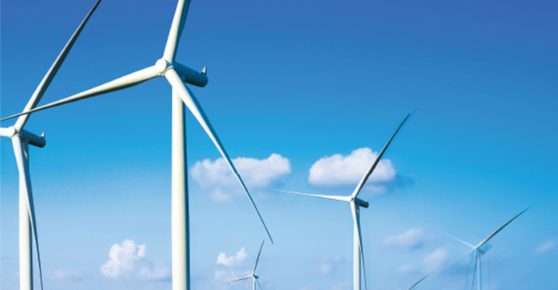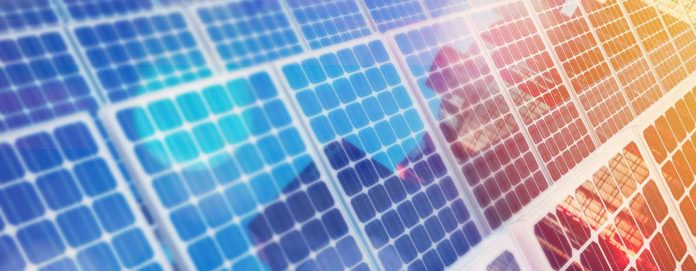How Energy Efficiency Can Make Your Company More Resilient
In 2020, businesses quickly learned the importance of resiliency. To succeed through the challenges of a worldwide pandemic, companies in all industries had to modify operations and fight to stay profitable.
Moving forward, resiliency will continue to be critical for all businesses — both as the coronavirus pandemic continues and in anticipation of other future disruptions. You should have plans in place to remain successful through uncertainty and future events — from economic fluctuations to natural disasters.
While there are many components to resiliency, pursuing energy efficiency measures can help your company adapt in the face of uncertainty in a number of ways.
Related Content:
Changes and unpredictability in the energy market can make it difficult to manage your budget. Learn what causes these fluctuations and the steps your business can take to achieve stability.
Download the Managing Your Energy Strategy Through Uncertainty guide.
Increased Safety for Consumers and the Community
Energy efficiency projects can increase safety for your consumers and the community. The COVID-19 pandemic, for example, highlighted the importance of several energy efficiency projects that were helpful in reducing the spread of the disease.
For instance, research has found that proper blue-light wavelengths of high-intensity LED lighting can kill bacteria, fungus and mold.[1] In fact, this type of intensified LED lighting was proven to be an effective disinfectant that is safer than ultraviolet (UV) lighting. While longer periods of exposure to UV light can harm an individual’s eyes, LED lights don’t have that damaging effect. In addition, LED lights tend to have a much longer operational life than UV lights. With all this in mind, companies that choose to replace older lighting with antibacterial LED lighting may be able to help prevent the spread of communicable diseases, such as COVID-19, as well as protect employees from eye damage and extend the life of their lighting systems
Along the same lines, the Environmental Protection Agency (EPA) recommended ventilation and filtration through ventilating, cooling and heating systems to reduce the spread of COVID-19.[2] While COVID-19 can be spread through close contact with contaminated surfaces and infected people, it can also be transmitted via airborne particles, particularly in indoor areas. According to the EPA, increasing your ventilation and air filtration, which may include updating your business’s HVAC system, can be an important part of a successful strategy to help prevent the spread of disease.
Reduced Fluctuations in Energy Demand and Spend
Catastrophic events can have a profound impact on the energy market. The 2014 polar vortex, for example, led to an abnormally elevated demand for energy and correspondingly high prices.[3] The 2020 coronavirus pandemic, on the other hand, prompted widespread business closures and, as a result, lower commercial demand for energy.
Related Content:
Managing your energy strategy requires relevant and timely market information. Get access to insights that will help you make informed energy decisions. Register for our monthly Energy Market Intel Webinar.
While your company won’t be able to predict future events — or the specific impact they will have on overall energy demand — you can reduce your company’s energy consumption by implementing energy efficiency measures.
Through upgrades like lighting improvements, building automation, energy management control systems, and electric motors and drives, you may be able to reduce your overall energy consumption. That way, even when the market fluctuates, you will experience less variation in your energy spend, which can help you maintain budget certainty.
Increased Ability to Focus on Other Business Priorities Through Energy Efficiency
It’s no surprise that unexpected events can have a dramatic impact on a company’s financial status. For example, an economic downturn can drastically change consumer purchasing behaviors, which can negatively impact company revenue and profit. Or, as the coronavirus pandemic demonstrated, unprecedented events can prompt businesses to temporarily close or shift their operations to provide a different kind of product or service.[4]
In these situations, overcoming the challenge at hand becomes a company’s top priority.
By pursuing energy efficiency efforts now, you can prepare your company to be able to fully focus on any new challenges that arise. Rather than worrying about inefficient or costly systems while also dealing with a disruptive event, you can concentrate on the issue at hand.
Ultimately, resiliency encompasses a wide variety of components. To make your company truly capable of adapting — no matter what the future holds — you must take into account the safety of your customers or work force, your company’s susceptibility to energy market fluctuations and your ability to withstand changes from unforeseen events. For a deeper look into how to achieve stability in your energy purchasing, access our guide, “Managing Your Energy Strategy Through Uncertainty.”
Constellation can help you implement the right energy efficiency measures now to prepare your business for the future. Through our Efficiency Made Easy program, you can take advantage of energy efficiency improvements immediately, with no upfront capital — so you can begin reaping the benefits now. To learn more, contact us today.
[1] “Sanitizing Light: LEDs Become a Disinfectant Technology,” Electrical Contractor Magazine
[2] “Indoor Air and Coronavirus (COVID-19),” EPA
[3] “U.S. power grid survived polar vortex, but only just: Kemp,” Reuters
[4] “The impact of COVID-19 on small business outcomes and expectations,” Proceedings of the National Academy of Sciences (PNAS)





![[Video] An overview of Constellation Offsite Renewables (CORe)](https://energy.constellation.com/wp-content/uploads/2020/12/video_poster.jpg)
![[Video] Constellation Powers 340 Illinois Starbucks with 100% Renewable Energy](https://energy.constellation.com/wp-content/uploads/2020/12/sbux_poster.jpg)


